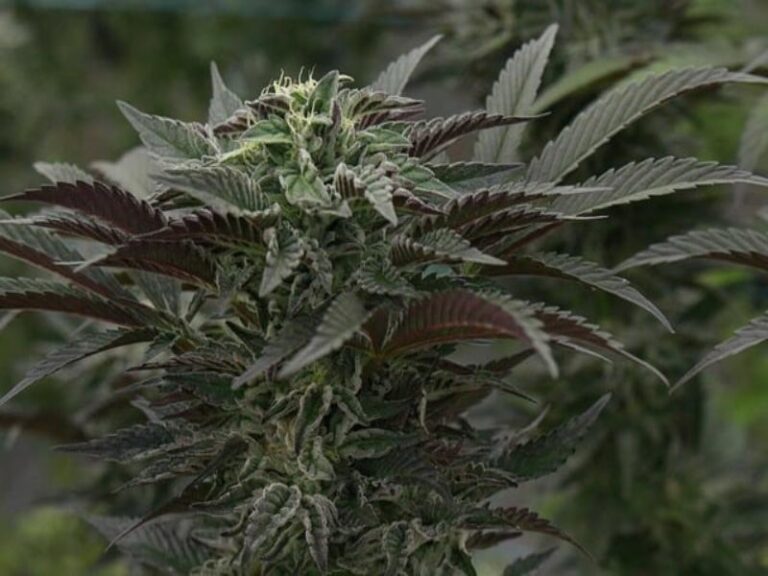The cannabis cultivation world has evolved dramatically over the past few years, with growers seeking efficient and reliable methods to expand their crops. One of the most popular strategies involves purchasing cannabis clones for sale. These clones offer a viable alternative to starting from seeds, ensuring consistency and accelerating growth. Whether you are a seasoned cultivator or a novice grower, understanding the benefits and nuances of cannabis clones for sale can significantly impact your harvest success.
Cannabis clones for sale represent genetically identical cuttings taken from a mature mother plant. This method guarantees that the clone carries the exact traits of the parent, including potency, flavor, and yield potential. For many growers, this genetic consistency is invaluable. Instead of gambling on seeds that may or may not express the desired characteristics, clones provide a predictable outcome. This predictability makes cannabis clones for sale an attractive option for commercial growers looking to maintain a standard product and home growers aiming for quality.
One of the biggest advantages of choosing cannabis clones for sale is the reduced cultivation time. Clones are essentially seedlings that have already passed the germination phase and root development. As a result, growers can skip the slow early stages of growth, getting their plants to maturity faster than starting from seed. This acceleration means more harvests per year and potentially higher profits. For those who prioritize speed and efficiency, cannabis clones for sale are the ideal solution.
Another critical factor that makes cannabis clones for sale popular is their ease of use. New growers might find starting from seed challenging, especially when it comes to germination rates and delicate seedlings. Clones, on the other hand, come pre-rooted and ready for transplantation, reducing the margin for error. By purchasing cannabis clones for sale, novice cultivators can avoid common pitfalls and enjoy a more straightforward planting process. This accessibility is driving the demand for clones across the cannabis community.
It is essential, however, to source cannabis clones for sale from reputable providers. Since clones are cuttings of living plants, their health and genetics directly affect the quality of your crop. Poorly maintained clones may carry diseases, pests, or weak genetics, which can jeopardize an entire grow operation. Always ensure that cannabis clones for sale come from trusted growers who prioritize hygiene and plant health. Quality clones translate to vigorous plants and bountiful yields.
The diversity of strains available through cannabis clones for sale also makes this option appealing. Many nurseries and dispensaries offer clones from popular strains as well as rare or exotic genetics. This variety allows growers to experiment with different cannabinoid profiles, flavors, and growth patterns. Whether you’re interested in a high-THC strain or a CBD-rich cultivar, finding cannabis clones for sale tailored to your needs is easier than ever. This variety empowers growers to craft a personalized cannabis garden that suits their preferences and goals.
Furthermore, cannabis clones for sale support sustainable cultivation practices. By using clones instead of seeds, growers reduce the need for extensive breeding programs and seed production, which can be resource-intensive. Clones allow for the reuse of genetics from a single mother plant, decreasing waste and promoting environmental responsibility. For cultivators mindful of their ecological footprint, choosing cannabis clones for sale aligns with greener growing philosophies.
It’s also worth noting that cannabis clones for sale provide consistency in medicinal cannabis production. Patients relying on specific strains for therapeutic benefits need assurance that each batch will be identical in chemical composition. Seeds can introduce variability, which might affect potency and efficacy. Clones eliminate this uncertainty by delivering plants with uniform cannabinoid and terpene profiles. This reliability is crucial for medical growers who supply patients with consistent and effective cannabis products.
When buying cannabis clones for sale, it is vital to consider the legal landscape of your region. Regulations around cannabis cultivation vary widely, and some areas have strict rules regarding plant propagation and clone sales. Always verify local laws before purchasing clones to ensure compliance and avoid legal issues. Many licensed sellers of cannabis clones for sale operate within regulatory frameworks, providing legal and safe options for growers.
In addition to purchasing clones, many growers also learn to create their own cannabis clones for sale, turning their favorite plants into a sustainable source of propagation. This practice involves taking cuttings from a healthy mother plant and nurturing them until roots develop. By mastering cloning techniques, cultivators gain greater control over their grow operation and reduce dependency on external suppliers. However, for those just starting out or looking for convenience, buying cannabis clones for sale remains a practical and effective choice.
To maximize success with cannabis clones for sale, proper care during transportation and after planting is essential. Clones are living cuttings that require optimal humidity, temperature, and light conditions to thrive. When purchasing clones, ensure they arrive healthy and are promptly transplanted into suitable growing media. Adequate watering, nutrients, and pest management further enhance the growth and vigor of your clones. By investing attention and care into cannabis clones for sale, growers can unlock their full potential.
In conclusion, cannabis clones for sale offer a host of benefits for cultivators seeking quality, consistency, and efficiency. From faster growth cycles and easier handling to genetic reliability and sustainability, clones represent a smart choice for many growers. As the cannabis industry continues to expand and evolve, the availability and diversity of cannabis clones for sale will only increase. Whether you’re cultivating for personal use or commercial purposes, exploring cannabis clones for sale can be the key to a successful and rewarding harvest.
The medical cannabis field is burgeoning, with increasing recognition of its therapeutic benefits across various conditions. As this sector grows, the need for specialized expertise in medical marijuana becomes more apparent. “Medical Marijuana Mastery” signifies a deep and comprehensive understanding of cannabis-based treatments, encompassing advanced knowledge, patient care, and effective integration into conventional medical practices. This article explores the fundamental aspects of Medical Marijuana Mastery, its importance in contemporary healthcare, and its influence on the future of cannabis-based medicine.
### **Introduction to Medical Marijuana Mastery**
Medical Marijuana Mastery refers to achieving an advanced level of expertise in the use of cannabis for medical purposes. This expertise involves understanding the pharmacology of cannabinoids, tailoring treatments to individual patient needs, and integrating cannabis therapy into broader healthcare plans. The goal is to ensure that medical professionals can deliver effective, evidence-based, and patient-centered cannabis care.
### **Core Aspects of Medical Marijuana Mastery**
#### **1. In-Depth Knowledge of Cannabinoids**
A fundamental component of Medical Marijuana Mastery is a thorough understanding of cannabinoids and their effects:
– **Cannabinoid Science:** Mastery involves understanding how cannabinoids such as THC (tetrahydrocannabinol) and CBD (cannabidiol) interact with the body’s endocannabinoid system. This knowledge is essential for predicting therapeutic outcomes and managing potential side effects.
– **Terpenes and Other Compounds:** Beyond cannabinoids, an expert must also be knowledgeable about terpenes and flavonoids—compounds that influence the flavor, aroma, and therapeutic effects of cannabis. Understanding these components helps in selecting the right products for specific conditions.
– **Formulations and Products:** Mastery includes knowledge of various cannabis products, including flowers, oils, edibles, and topical treatments. Each product has unique properties and uses, and expertise in these allows for tailored treatment plans.
#### **2. Advanced Patient Assessment**
Effective use of medical cannabis starts with a detailed patient assessment:
– **Comprehensive Evaluation:** Gathering a thorough medical history and understanding the patient’s health conditions, current treatments, and treatment goals is crucial. This comprehensive assessment helps in formulating an effective cannabis treatment plan.
– **Tailoring Treatment Plans:** Based on the patient’s condition, preferences, and response to previous treatments, a tailored cannabis regimen can be developed. This includes selecting the appropriate strains or products and determining dosages.
– **Ongoing Monitoring:** Continuous monitoring of the patient’s progress and making adjustments to the treatment plan as necessary is a key aspect of Medical Marijuana Mastery. This involves regular follow-ups and adapting the treatment based on efficacy and side effects.
#### **3. Expertise in Dosing and Administration**
Proper dosing and administration are critical for achieving desired therapeutic outcomes:
– **Dose Management:** Determining the correct dosage is essential for efficacy and minimizing side effects. Mastery involves starting with lower doses and gradually adjusting based on patient response.
– **Administration Methods:** Different methods of cannabis administration (e.g., smoking, vaping, edibles, tinctures) have varying onset times and effects. Mastery includes knowing the best method for each patient’s needs and conditions.
– **Adjustments and Adjustments:** Experts must be adept at adjusting doses and methods based on patient feedback and treatment results. This requires a deep understanding of how different delivery methods impact the body.
#### **4. Integration with Conventional Therapies**
Cannabis therapy often needs to be integrated with other treatments:
– **Collaborative Care:** Working alongside other healthcare providers ensures that cannabis therapy complements existing treatments. This collaboration helps in creating a comprehensive care plan.
– **Managing Interactions:** Knowledge of potential interactions between cannabis and other medications is essential. Professionals must be able to manage and mitigate any adverse interactions to ensure safe and effective treatment.
– **Holistic Approach:** Incorporating cannabis into a holistic treatment plan that considers the patient’s overall health, lifestyle, and other factors ensures that therapy is well-rounded and effective.
### **The Importance of Medical Marijuana Mastery**
#### **1. Improving Patient Outcomes**
With Medical Marijuana Mastery, healthcare providers can offer personalized, evidence-based cannabis treatments that improve patient outcomes. Tailoring treatments to individual needs ensures better management of symptoms and enhancement of quality of life.
#### **2. Advancing Clinical Practice**
Experts in medical cannabis contribute to the advancement of clinical practices by applying the latest research, implementing best practices, and guiding the use of cannabis in medical settings. This leadership helps set standards and drive innovation in the field.
#### **3. Ensuring Safe and Effective Use**
Mastery ensures that medical cannabis is used safely and effectively. By understanding the nuances of cannabis therapy, professionals can prevent misuse, manage side effects, and optimize therapeutic benefits.
#### **4. Supporting Evidence-Based Medicine**
A commitment to Medical Marijuana Mastery involves staying informed about emerging research and integrating evidence-based practices. This approach supports the ongoing development of the field and promotes high standards of patient care.
### **Impact on the Healthcare Landscape**
Medical Marijuana Mastery has a significant impact on various aspects of healthcare:
#### **1. Enhancing Integration**
By effectively integrating cannabis into conventional treatments, healthcare providers can offer a broader range of therapeutic options. This integration improves patient access to effective therapies and enhances overall treatment strategies.
#### **2. Influencing Policy and Regulation**
Experts in medical cannabis play a crucial role in shaping policies and regulations. Their insights help inform the development of regulations that support patient access, safety, and the responsible use of cannabis in medicine.
#### **3. Educating Future Professionals**
Mastery in medical cannabis supports the education of future healthcare professionals. Experienced practitioners impart knowledge and best practices, helping to build a knowledgeable workforce capable of delivering high-quality cannabis care.
### **Challenges and Future Directions**
Despite progress, challenges remain, including navigating complex regulations, addressing gaps in research, and ensuring equitable patient access. The field must continue to advance through ongoing education, research, and collaboration.
Future directions for Medical Marijuana Mastery include expanding research into the long-term effects of cannabis, enhancing educational programs for healthcare providers, and advocating for policies that facilitate broader access to cannabis-based treatments.
### **Conclusion**
Medical Marijuana Mastery represents a crucial approach to advancing the use of cannabis in medical contexts. By focusing on in-depth knowledge, personalized patient care, and effective integration, healthcare professionals can elevate the standards of cannabis-based medicine. As the field continues to evolve, achieving mastery in medical marijuana will be essential for optimizing patient outcomes, advancing clinical practices, and shaping the future of healthcare.
As the medical cannabis field continues to expand, the need for specialized knowledge and skills is increasingly evident. “Medical Marijuana Mastery” is a comprehensive approach aimed at equipping healthcare professionals with the expertise necessary to harness the full potential of cannabis-based treatments. This article explores the key elements of Medical Marijuana Mastery, its significance in modern medicine, and its impact on patient care and healthcare practice.
### **Understanding Medical Marijuana Mastery**
Medical Marijuana Mastery involves achieving a deep and nuanced understanding of how cannabis can be effectively used in medical contexts. It encompasses a range of competencies, including knowledge of cannabinoid pharmacology, patient assessment, dosing strategies, and integration into broader treatment regimens. Mastery in this area ensures that healthcare professionals can provide informed, safe, and effective cannabis-based treatments tailored to individual patient needs.
### **Core Elements of Medical Marijuana Mastery**
#### **1. Advanced Cannabinoid Science**
A key component of Medical Marijuana Mastery is a thorough understanding of cannabinoid science:
– **Cannabinoid Mechanisms:** Healthcare professionals must grasp how cannabinoids like THC (tetrahydrocannabinol) and CBD (cannabidiol) interact with the endocannabinoid system. This knowledge is essential for predicting therapeutic outcomes and managing side effects.
– **Phytocannabinoids vs. Endocannabinoids:** Understanding the differences between phytocannabinoids (plant-derived) and endocannabinoids (produced by the body) helps in designing effective treatment plans.
– **Cannabis Strains and Products:** Familiarity with various cannabis strains and their chemical profiles allows for tailored treatment approaches. This includes knowledge of different delivery methods, such as vaporizers, edibles, tinctures, and topical applications.
#### **2. Patient-Centered Assessment**
Effective patient-centered assessment is critical for optimizing medical cannabis use:
– **Medical History and Evaluation:** Gathering a comprehensive medical history and understanding the patient’s conditions, previous treatments, and responses are crucial for developing a personalized cannabis treatment plan.
– **Symptom Management:** Assessing the specific symptoms the patient is experiencing helps in selecting the appropriate cannabis strain and dosage. This may involve treating chronic pain, anxiety, insomnia, or other conditions.
– **Individualized Treatment Plans:** Creating a tailored treatment plan involves setting clear goals, choosing the right cannabis products, and determining appropriate dosages based on patient needs and responses.
#### **3. Dosing and Administration Expertise**
Mastery in dosing and administration is vital for effective treatment:
– **Dose Optimization:** Establishing starting doses and adjusting based on patient feedback and clinical outcomes is essential. Professionals must be skilled in titrating doses to achieve the desired therapeutic effects while minimizing side effects.
– **Administration Methods:** Understanding the pros and cons of different administration methods allows for more precise treatment planning. Methods such as smoking, vaping, and ingesting edibles each have unique onset times and effects.
– **Monitoring and Adjustment:** Regular monitoring of patient progress and adjusting treatment plans as needed ensures ongoing efficacy and safety. This requires continuous patient engagement and feedback.
#### **4. Integration with Conventional Treatments**
Integrating medical cannabis with conventional treatments is a crucial aspect of Medical Marijuana Mastery:
– **Interdisciplinary Collaboration:** Collaborating with other healthcare providers to ensure that cannabis therapy complements existing treatments and does not interfere with other medications or therapies.
– **Managing Interactions:** Being aware of potential interactions between cannabis and other medications is important for preventing adverse effects and ensuring effective treatment.
– **Holistic Care Approach:** Considering the overall well-being of the patient, including physical health, mental health, and lifestyle factors, helps in providing comprehensive and effective care.
### **Importance of Medical Marijuana Mastery**
#### **1. Enhancing Patient Outcomes**
Mastery in medical cannabis leads to improved patient outcomes by providing tailored, evidence-based treatments. Personalized care ensures that patients receive the most effective therapies for their specific conditions, resulting in better symptom management and quality of life.
#### **2. Advancing Clinical Practices**
Healthcare professionals with Medical Marijuana Mastery contribute to the advancement of clinical practices by implementing best practices, staying informed about the latest research, and leading by example in the use of cannabis-based therapies.
#### **3. Promoting Safe and Effective Use**
A deep understanding of medical cannabis ensures that it is used safely and effectively. Mastery in the field helps prevent misuse, manage side effects, and optimize therapeutic benefits, enhancing overall patient safety.
#### **4. Supporting Evidence-Based Practices**
Mastery involves staying up-to-date with the latest research and evidence, supporting the development of evidence-based practices in medical cannabis. This commitment to scientific rigor promotes high standards of care and supports ongoing advancements in the field.
### **Impact on Healthcare**
Medical Marijuana Mastery has a profound impact on the healthcare landscape:
#### **1. Improved Integration into Healthcare Systems**
Effective integration of medical cannabis into healthcare systems allows for more comprehensive treatment options. This integration expands the therapeutic arsenal available to healthcare providers and enhances patient choice.
#### **2. Influencing Policy and Regulation**
Experts in medical cannabis can provide valuable insights into policy and regulatory development. Their expertise helps shape policies that support patient access, safety, and effective use of cannabis-based treatments.
#### **3. Education and Training**
Mastery in medical marijuana supports the education and training of future healthcare professionals. By imparting knowledge and best practices, experienced practitioners contribute to the development of a knowledgeable workforce capable of delivering high-quality cannabis care.
### **Challenges and Future Directions**
Despite significant progress, challenges remain, including navigating regulatory complexities, addressing gaps in research, and ensuring equitable patient access. The field must continue to evolve through ongoing education, research, and collaboration.
Future directions for Medical Marijuana Mastery include expanding research into the long-term effects of cannabis use, enhancing educational programs for healthcare professionals, and advocating for policies that facilitate broader patient access to cannabis-based treatments.
### **Conclusion**
Medical Marijuana Mastery represents a crucial approach to advancing the use of cannabis in medical settings. By focusing on in-depth knowledge, personalized patient care, and effective integration, healthcare professionals can elevate the standard of cannabis-based medicine. As the field continues to develop, mastery in medical marijuana will be essential for optimizing patient outcomes, advancing clinical practice, and shaping the future of healthcare.
The medical marijuana industry is evolving at an unprecedented pace, driven by increasing recognition of the therapeutic potential of cannabis. As research and clinical practice advance, there is a growing need for comprehensive expertise in the field. “Medical Marijuana Mastery” represents a critical approach to addressing this need, focusing on the development of in-depth knowledge and skills in the use of cannabis for medical purposes. This article explores the core elements of Medical Marijuana Mastery, its importance in patient care, and its impact on the healthcare landscape.
### **Introduction to Medical Marijuana Mastery**
Medical Marijuana Mastery is a concept that emphasizes the development of advanced knowledge and skills in the use of medical cannabis. This mastery involves a thorough understanding of the pharmacology of cannabinoids, the nuances of patient assessment, the intricacies of dosing, and the integration of cannabis into broader treatment plans. The goal is to ensure that healthcare professionals can offer safe, effective, and personalized cannabis-based treatments.
### **Core Components of Medical Marijuana Mastery**
#### **1. Comprehensive Understanding of Cannabinoids**
A foundational aspect of Medical Marijuana Mastery is a deep understanding of cannabinoids and their effects on the human body. This involves:
– **Cannabinoid Pharmacology:** Understanding the different types of cannabinoids, such as THC (tetrahydrocannabinol) and CBD (cannabidiol), and how they interact with the endocannabinoid system. This knowledge is crucial for predicting therapeutic effects and potential side effects.
– **Terpenes and Flavonoids:** Exploring the roles of terpenes and flavonoids in cannabis, which contribute to the plant’s aroma, flavor, and therapeutic effects. Terpenes can influence the effects of cannabinoids and may offer additional therapeutic benefits.
– **Product Variations:** Recognizing the differences between various cannabis products, including flowers, tinctures, edibles, and concentrates. Each product type has distinct characteristics that impact its use in treatment.
#### **2. Patient Assessment and Treatment Planning**
Effective patient assessment and treatment planning are essential for optimizing medical cannabis use. This involves:
– **Comprehensive Patient History:** Gathering detailed information about the patient’s medical history, current conditions, and previous treatments. This helps in tailoring cannabis-based treatments to individual needs.
– **Condition-Specific Considerations:** Understanding how different conditions, such as chronic pain, anxiety, or epilepsy, may respond to cannabis treatment. This knowledge allows for targeted therapy that addresses specific symptoms or underlying issues.
– **Personalized Treatment Plans:** Developing individualized treatment plans based on patient assessments. This includes selecting appropriate cannabis strains or products, determining dosages, and establishing treatment goals.
#### **3. Dosing and Administration**
Determining the correct dosage and method of administration is critical for effective medical cannabis treatment. Key considerations include:
– **Dosing Guidelines:** Establishing starting doses and titration schedules based on the patient’s condition and response. This requires knowledge of how different cannabinoids and delivery methods affect dosing.
– **Methods of Administration:** Understanding the advantages and disadvantages of various administration methods, such as smoking, vaporizing, sublingual tinctures, edibles, and topical applications. Each method has different onset times and durations of effect.
– **Monitoring and Adjustments:** Continuously monitoring the patient’s response to treatment and making necessary adjustments to dosing or product selection based on efficacy and tolerability.
#### **4. Integration with Conventional Therapies**
Medical marijuana should be integrated thoughtfully with conventional treatments to provide comprehensive care. This involves:
– **Interdisciplinary Collaboration:** Working with other healthcare providers to ensure that cannabis treatment complements existing therapies and does not interfere with them. Collaboration is key to creating a cohesive treatment plan.
– **Managing Drug Interactions:** Being aware of potential interactions between cannabis and other medications. This requires knowledge of how cannabis can affect the metabolism of other drugs and how to manage these interactions.
– **Holistic Care:** Considering the patient’s overall health and well-being, including lifestyle factors, mental health, and social support. Medical cannabis should be part of a broader approach to patient care.
### **The Importance of Medical Marijuana Mastery**
Mastering medical marijuana is crucial for several reasons:
#### **1. Enhancing Patient Outcomes**
A comprehensive understanding of medical cannabis allows healthcare professionals to tailor treatments to individual needs, improving efficacy and minimizing adverse effects. This personalized approach enhances patient outcomes and satisfaction.
#### **2. Advancing Clinical Practice**
As the field of medical cannabis continues to evolve, professionals with mastery in the subject contribute to the advancement of clinical practice. They can lead by example, implement best practices, and stay abreast of emerging research and developments.
#### **3. Promoting Safe and Effective Use**
Medical Marijuana Mastery ensures that cannabis is used safely and effectively. Professionals with expertise in this area can guide patients through the complexities of cannabis use, reducing the risk of misuse and optimizing therapeutic benefits.
#### **4. Supporting Evidence-Based Practice**
Mastery in medical marijuana involves staying informed about the latest research and evidence. This commitment to evidence-based practice supports the ongoing development of the field and promotes high standards of care.
### **Impact on the Healthcare Landscape**
Medical Marijuana Mastery has a significant impact on the healthcare landscape:
#### **1. Improving Integration**
By integrating cannabis into conventional treatment plans, healthcare professionals can offer more comprehensive care options. This integration enhances patient choice and expands treatment possibilities.
#### **2. Influencing Policy and Regulation**
Experts in medical cannabis can contribute to shaping policies and regulations that support patient access and safety. Their knowledge and experience provide valuable insights into the development of effective cannabis regulations.
#### **3. Educating the Next Generation**
Mastery in medical marijuana supports the education of future healthcare professionals. By sharing knowledge and best practices, experienced practitioners help train the next generation of cannabis specialists.
### **Challenges and Future Directions**
Despite its advancements, Medical Marijuana Mastery faces challenges such as navigating regulatory complexities and addressing gaps in research. The field must continue to evolve through ongoing education, research, and collaboration.
Looking ahead, efforts will focus on expanding research, enhancing educational programs, and fostering interdisciplinary collaboration to further integrate medical cannabis into mainstream healthcare.
### **Conclusion**
Medical Marijuana Mastery represents a critical approach to advancing the field of medical cannabis. By focusing on comprehensive understanding, personalized treatment, and effective integration, healthcare professionals can elevate the standard of cannabis-based care. As the field continues to grow, mastering medical marijuana will be essential for optimizing patient outcomes, advancing clinical practice, and promoting safe and effective use of cannabis in medicine.



